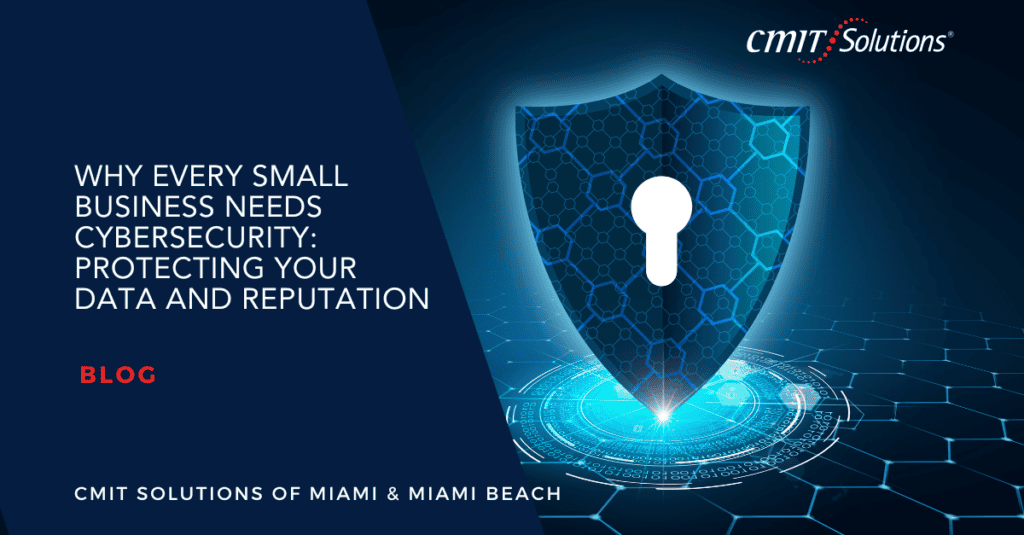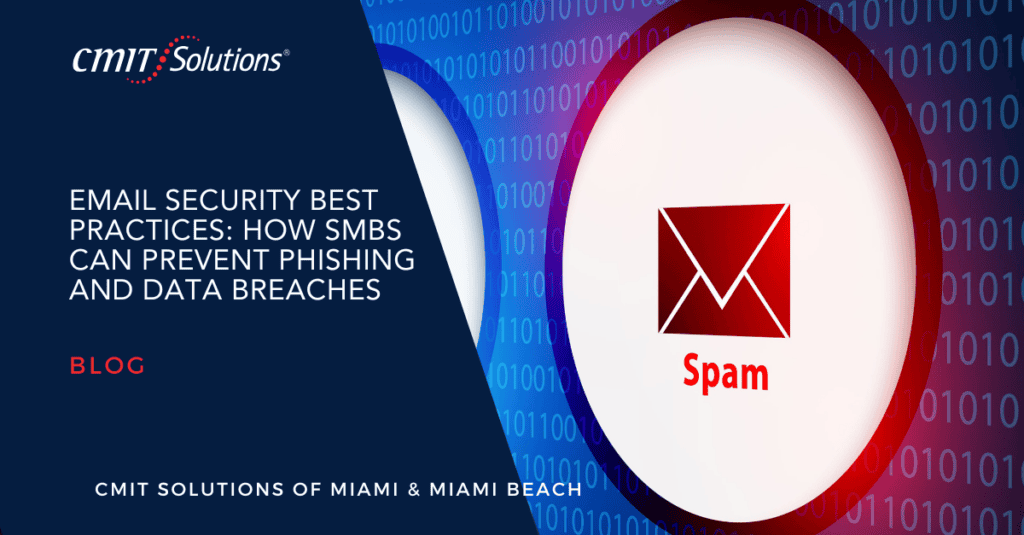Small businesses often assume that compliance with IT regulations is only necessary for large corporations. However, failing to adhere to data security and regulatory requirements can lead to hefty fines, legal issues, and reputational damage. Whether it’s protecting customer information, securing financial transactions, or meeting industry-specific regulations, compliance is essential for long-term business success.
For small businesses in Miami and Miami and Miami Beach, understanding and implementing compliance measures doesn’t have to be overwhelming. With the right IT guidance and security strategies, businesses can navigate complex regulations efficiently and avoid costly penalties.
Why Compliance Matters for Small Businesses
Non-compliance can expose businesses to legal risks, data breaches, and operational disruptions. Many regulations exist to ensure companies follow best practices in network security, data protection, and privacy laws. Small businesses must prioritize compliance to:
- Avoid Fines and Legal Consequences: Regulatory violations can result in penalties that impact financial stability.
- Protect Customer Data: Many regulations require businesses to implement cybersecurity measures to safeguard sensitive information.
- Enhance Business Reputation: Customers and partners trust businesses that follow industry standards.
- Prevent Cybersecurity Threats: Compliance helps mitigate risks associated with phishing attacks, data breaches, and ransomware threats.
Key IT Regulations That Small Businesses Must Follow
Understanding the compliance landscape is the first step in securing business operations. Below are the most common IT regulations affecting small businesses.
1. General Data Protection and Privacy Laws
Many businesses collect and store customer data, making data backup and security crucial for compliance. Regulations such as:
- General Data Protection Regulation (GDPR): Applies to businesses that handle EU citizens’ data.
- California Consumer Privacy Act (CCPA): Requires transparency in data collection for California residents.
To comply with these laws, businesses should enforce data encryption, access controls, and secure data storage using cloud services.
2. Payment Card Industry Data Security Standard (PCI-DSS)
Any business processing credit card transactions must comply with PCI-DSS to protect customer payment information. Compliance requirements include:
- Using secure network management to protect payment processing systems.
- Encrypting credit card data to prevent unauthorized access.
- Regularly testing and updating security protocols.
Failure to comply can result in financial penalties and loss of the ability to process payments.
3. Health Insurance Portability and Accountability Act (HIPAA)
Businesses in the healthcare sector must follow HIPAA regulations to protect patient data. This includes:
- Implementing strict access control measures to prevent unauthorized access to medical records.
- Using unified communications solutions that encrypt patient communications.
- Regularly updating cybersecurity policies to protect electronic health records.
HIPAA compliance is essential for healthcare providers, insurance companies, and any business handling patient data.
4. Federal Trade Commission (FTC) Safeguards Rule
Businesses that handle sensitive consumer information, such as financial services or legal firms, must comply with the FTC Safeguards Rule. This regulation requires:
- Strong IT procurement practices to ensure security in business operations.
- Employee training on cybersecurity best practices to prevent data breaches.
- Implementing IT compliance solutions to continuously monitor security risks.
How Small Businesses Can Achieve IT Compliance Without the Hassle
Many small businesses lack dedicated compliance teams, making IT regulations seem complex. However, with the right approach, compliance can be streamlined and integrated into daily operations.
1. Conduct a Compliance Assessment
Businesses should start by evaluating their current IT infrastructure and identifying potential compliance gaps. A compliance assessment should include:
- Reviewing data storage and encryption policies.
- Assessing vulnerabilities in network security.
- Ensuring proper data backup and disaster recovery strategies are in place.
Working with an IT guidance expert helps businesses understand their specific regulatory requirements.
2. Implement Strong Cybersecurity Measures
Compliance often overlaps with cybersecurity best practices. Businesses should adopt a cybersecurity strategy that includes:
- Multi-factor authentication (MFA) to secure email accounts and business applications.
- Advanced threat detection to monitor for suspicious activity.
- Firewall and endpoint protection to block unauthorized access.
3. Automate Compliance with Managed IT Services
For businesses without in-house compliance expertise, partnering with managed IT services simplifies the process. Managed IT providers offer:
- 24/7 security monitoring to detect potential threats.
- Automated compliance reporting to ensure regulations are met.
- Regular security updates and patch management to prevent vulnerabilities.
4. Educate Employees on Compliance and Cybersecurity
Employees play a critical role in maintaining compliance. Regular training ensures that staff members:
- Recognize phishing emails and other cyber threats.
- Follow company policies for handling sensitive data.
- Use secure unified communications platforms for business communication.
5. Keep IT Systems and Software Updated
Outdated software increases security risks and non-compliance. Businesses should:
- Regularly update operating systems and security software.
- Replace outdated hardware through IT procurement services.
- Schedule routine compliance audits to stay ahead of regulatory changes.
The Role of Managed IT Services in Compliance
Navigating IT regulations can be challenging, but managed IT services provide the expertise needed to maintain compliance. Managed IT providers help small businesses:
- Monitor security threats and compliance risks in real time.
- Ensure data protection with advanced encryption and backup solutions.
- Automate compliance documentation and reporting for audits.
- Provide expert IT guidance to simplify regulatory requirements.
Why Miami and Miami Beach Small Businesses Need IT Compliance Support
Businesses in Miami and Miami and Miami Beach operate in highly regulated industries, including finance, healthcare, and e-commerce. Non-compliance with data security laws can result in legal consequences and financial losses.
By partnering with a cybersecurity expert, small businesses can confidently navigate IT regulations while focusing on growth. Implementing compliance-driven cybersecurity strategies ensures that businesses remain secure and competitive in today’s digital landscape.
Conclusion
Compliance doesn’t have to be overwhelming for small businesses. By understanding IT regulations and integrating best practices into daily operations, companies can achieve compliance while enhancing cybersecurity.
Implementing managed IT services streamlines compliance management, allowing businesses to focus on growth without worrying about regulatory issues.
For expert IT compliance solutions tailored to your business, contact CMIT Solutions of Miami and Miami Beach today.




